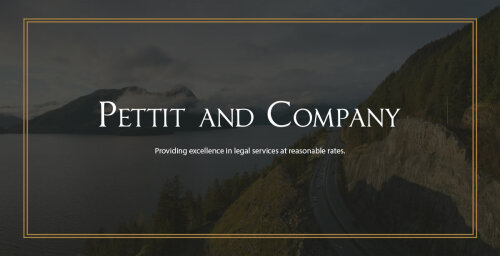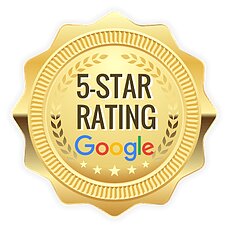Best Insurance Lawyers in Canada
Share your needs with us, get contacted by law firms.
Free. Takes 2 min.
Or refine your search by selecting a city:
List of the best lawyers in Canada
About Insurance Law in Canada
Insurance law in Canada is a comprehensive field that governs the business and regulation of insurance. It encompasses various types of insurance, including life, property, auto, health, and liability insurance. Each province and territory in Canada has its own regulatory body that oversees the insurance industry, working under the framework established by the federal Office of the Superintendent of Financial Institutions (OSFI). Insurance policies in Canada are designed to provide financial protection against unforeseen events, ensuring that individuals and businesses can recover and rebuild in the event of a loss.
Why You May Need a Lawyer
There are numerous situations where individuals or businesses might need the assistance of a lawyer in the field of insurance law. For example, policyholders may require legal help when they encounter disputes with their insurance companies over denied claims or settlement amounts. Businesses might need legal advice when interpreting complex insurance contracts or when they require guidance on compliance with provincial insurance regulations. Additionally, individuals facing accusations of insurance fraud or other legal issues related to insurance may need the support of a knowledgeable lawyer to navigate the challenges.
Local Laws Overview
Local insurance laws in Canada are characterized by both federal and provincial regulations. Federally, the OSFI regulates financial institutions and oversees the soundness of the insurance market. Provincially, each province and territory has an agency responsible for licensing insurers and overseeing their operations. Key aspects of these laws include mandatory insurance requirements, such as automotive insurance; regulations surrounding licensing and operation of insurance companies; consumer protection laws regarding insurance policies; and privacy laws related to handling of personal information by insurers.
Frequently Asked Questions
What types of insurance are most common in Canada?
In Canada, the most common types of insurance include auto insurance, home insurance, life insurance, and health insurance. Business insurance and travel insurance are also widely used.
Is insurance mandatory in Canada?
Insurance is mandatory in some cases. For example, auto insurance is required by law in every province and territory. Homeowners' insurance is not legally mandatory but is typically required by mortgage lenders.
Can an insurance company deny my claim?
Yes, insurance companies can deny claims if they determine the claim is not covered under the policy terms, fraud is suspected, or if false information was provided. A lawyer can help if you believe your claim was unjustly denied.
What should I do if my insurance claim is denied?
First, review your policy thoroughly to understand the reasons for denial. If you disagree with the decision, contact your insurance company for a detailed explanation. If needed, seek legal advice to explore options for challenging the denial.
How can I file a complaint against an insurance company in Canada?
Complaints can be filed with the insurance company's ombudsman service. If unresolved, you can contact the insurance regulator in your province or the General Insurance OmbudService (GIO) in Canada for further assistance.
What is the role of the insurance regulator in my province?
The provincial insurance regulator ensures that insurance companies operate fairly and comply with provincial laws. They handle licensing, consumer complaints, and ensure market stability.
Are insurance settlements taxable in Canada?
Typically, insurance settlements for property damage are not taxable. However, certain settlements, such as those compensating for lost income, may be taxable. Consult a tax professional for advice specific to your situation.
Can I change my insurance provider at any time?
You can switch insurance providers at any time, though there may be cancellation fees or penalties. Be sure to have new coverage in place before canceling an existing policy to avoid any gaps.
What is the limitation period for filing an insurance claim in Canada?
Limitation periods for insurance claims can vary by province and type of insurance. Generally, the period ranges from one to two years after the loss or denial of the claim. It's important to act quickly to preserve your rights.
How can I ensure my insurance policy meets my needs?
Carefully assess your risks and needs, consult with insurance advisors or brokers, and review policy details to ensure coverage is adequate. Regularly update your policy as circumstances change.
Additional Resources
For those seeking further information or assistance, several resources are available. The Insurance Bureau of Canada (IBC) is a useful tool for understanding insurance products and rights. Provincial regulatory bodies, such as the Financial Services Regulatory Authority of Ontario (FSRA) and the British Columbia Financial Services Authority (BCFSA), provide consumer support and regulatory information. Additionally, the General Insurance OmbudService (GIO) offers a dispute resolution service for consumer insurance complaints.
Next Steps
If you require legal assistance in the field of insurance, begin by identifying the specific area or issue where you need help. Consult with an insurance lawyer to discuss your situation. Prepare documents related to your policy and any correspondence with your insurance company. It may be beneficial to reach out to local legal aid organizations, as many offer consultations and can advise on the best course of action given your circumstances.
Lawzana helps you find the best lawyers and law firms in Canada through a curated and pre-screened list of qualified legal professionals. Our platform offers rankings and detailed profiles of attorneys and law firms, allowing you to compare based on practice areas, including Insurance, experience, and client feedback.
Each profile includes a description of the firm's areas of practice, client reviews, team members and partners, year of establishment, spoken languages, office locations, contact information, social media presence, and any published articles or resources. Most firms on our platform speak English and are experienced in both local and international legal matters.
Get a quote from top-rated law firms in Canada — quickly, securely, and without unnecessary hassle.
Disclaimer:
The information provided on this page is for general informational purposes only and does not constitute legal advice. While we strive to ensure the accuracy and relevance of the content, legal information may change over time, and interpretations of the law can vary. You should always consult with a qualified legal professional for advice specific to your situation.
We disclaim all liability for actions taken or not taken based on the content of this page. If you believe any information is incorrect or outdated, please contact us, and we will review and update it where appropriate.
Browse insurance law firms by service in Canada
Canada Attorneys in related practice areas.
Browse insurance law firms by city in Canada
Refine your search by selecting a city.















